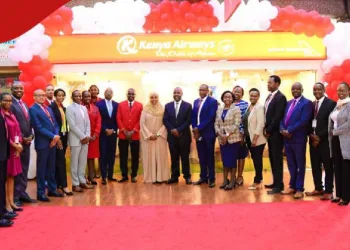The government plans to create a transboundary conservation area extending from Tanga to River Kongo in Tiwi, Kwale County. This initiative is part of efforts to increase the management of marine conservation areas to 30% by 2030.
Mohammed Omar, a senior scientist at the Wildlife Training and Research Institute, noted that discussions are ongoing between Kenyan and Tanzanian authorities to implement the project. Currently, Kenya has less than 1% of its ocean area designated for conservation, which is insufficient for marine life protection.
Omar emphasized that the project aims to enhance the conservation of marine ecosystems, boost ecotourism, and create employment opportunities, contributing to economic growth. He pointed out that the limited marine managed areas do not support a diverse range of marine species, hindering the potential of the blue economy.
Species such as whales, sharks, endangered dugongs, and sea turtles, which migrate long distances, require large and well-managed areas for population sustainability. While Kisite Mpunguti Marine National Park in Mombasa is one of Kenya’s protected marine ecosystems, its size is inadequate for significant impact.
The project aims to improve the conservation of various endangered marine species and promote sustainable fishing practices, maximizing benefits for communities reliant on ocean resources. Omar mentioned that training is being provided to communities through beach management units (BMUs), with over 30 BMUs from Vanga and Tiwi already trained in effective marine management for biodiversity and tourism.
Currently, many BMUs do not benefit from these projects due to a lack of adequate conservation and business skills. Omar highlighted that while Kisite Mpunguti attracts many tourists, local communities remain impoverished because they are not empowered.
Asma Awadh, WWF Coast program manager, stressed the importance of enhancing ocean conservation. She pointed out that pollution from improper waste management and destructive practices is harming marine life and affecting human communities. Some fish species are at risk of extinction due to ongoing pollution.
Awadh noted that the decline in the numbers of dolphins and dugongs is concerning. She attributed the slow response to conservation challenges to poor awareness and delayed interventions. Many Kenyan universities have only recently begun offering relevant courses, leaving graduates unprepared for emerging environmental issues.
Despite the challenges, Awadh believes the country is making progress toward effective conservation, although it may take time to see the benefits. WWF, in collaboration with various government agencies, is implementing nature-based solutions for climate change adaptation, promoting sustainable livelihoods through conservation initiatives.
Gladys Okemwa, principal research scientist at KMFRI’s Mombasa branch, praised the government’s conservation efforts, noting that management measures are yielding positive results. She highlighted that the plastic ban has significantly reduced environmental pollution, as plastics and nylon bags are major pollutants. KMFRI is also educating fishermen on sustainable fishing methods to enhance their incomes.
Enhancing Marine Conservation: Kenya’s Transboundary Initiative for Sustainable Ecosystems and Community Empowerment
Plugin Install : Subscribe Push Notification need OneSignal plugin to be installed.

















